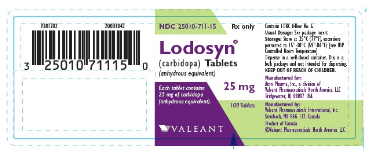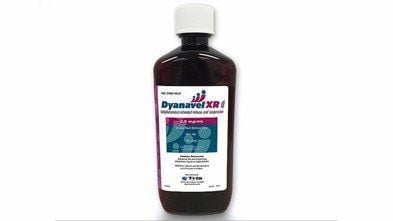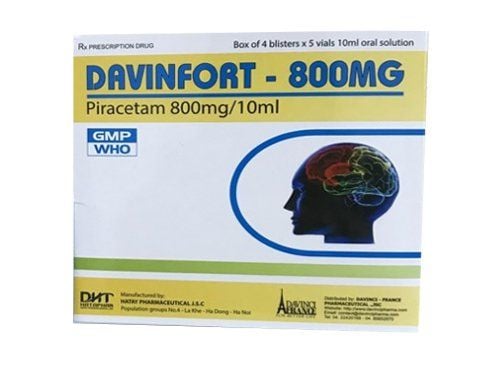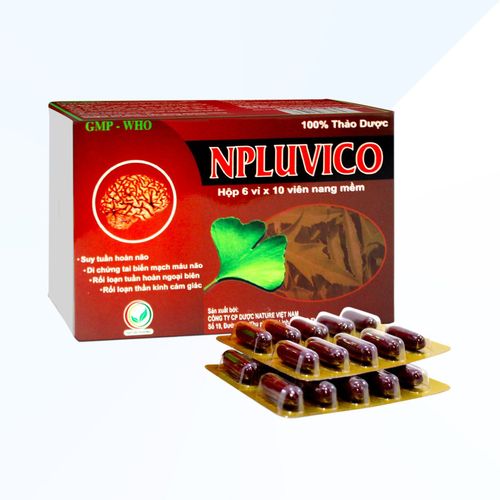This is an automatically translated article.
Signs of aging or dementia and Alzheimer's disease are not the same. Dementia is a general term used to describe memory-related symptoms that affect daily activities and the ability to communicate. Alzheimer's disease is the most common type of dementia. Alzheimer's disease progresses gradually over time and affects memory, language, and thinking. Distinguishing the signs of dementia from Alzheimer's disease plays an important role in the prevention and treatment of the disease.
1. Is your memory lost? We all have the capacity to forget things from time to time, especially as today's lives get busier and busier. You may start to notice this happening more often as you get older. Mild memory loss can be a normal part of the body's aging process. This does not mean that you will develop dementia. Only 1% of people over 65 with normal age-related memory problems will develop dementia each year.
2. When forgetting is a problem If memory loss makes it hard to process everyday tasks, that's a sign you shouldn't ignore. You can answer some of the following questions to determine if you have dementia.
Do you quickly forget what you just heard? Do you often ask the same question over and over? Need a lot of paper or electronic reminders just to get through the day? When the answer to the above questions is yes or the people around you feel those problems are happening to you. You should go to the doctor and ask for the advice of a specialist to have the right solutions.
3. Difficulty in planning or problem solving In fact, everyone has made mistakes in solving work and life. You incorrectly billed last month or paid the wrong amount on the bill. It's a normal thing that we all go through. But if you're really having trouble doing things like following directions in a familiar recipe or keeping track of bills the way you used to, it could be a warning sign of financial problems. memory such as dementia.
4. Difficulty remembering everyday tasks Forgot how to use that TV remote? Forgot how to set the microwave? If you need a little help with the above problems now and then there's probably nothing to worry about. But if you're having trouble performing activities in your daily life that you normally do, like driving to the places you always go, playing your favorite game, or finding your way at the grocery store, there's something wrong with that. It could be a sign of a more serious dementia problem.

Dấu hiệu lão hóa hay chứng sa sút trí tuệ và bệnh Alzheimer không giống nhau
5. Where did I park the car? Everyone has a couple of times wondering where they leave their car in the middle of a large garage. You walk out of the store and think, "Now, where did I leave my car?" Now and again forgetting where you parked your car is normal. However, if this happens often, you need to pay attention and go to the doctor and have a health check. It could be a warning sign of aging or dementia.
6. Can't find keys When you forget where you left something, like your keys or glasses, you'll be able to think again, review your steps, and find anything what. If you notice that you're losing a lot of things and you can't go back and find them, that's a common sign of a larger memory problem like dementia.
7. Losing time in determining the time Most of us wake up and think to ourselves, "What day is today?" It won't take you too long to figure that out. But if you regularly lose track of dates, seasons, or the passage of time, that's a relatively severe sign of dementia or actual memory problems.
8. How did I get here? If you walk into your office and can't remember what you're doing, that's not a problem. But people with Alzheimer's sometimes forget where they are. Or they find themselves somewhere and don't remember how they got there. If that's the problem you're having, you need to get medical attention promptly.
9. How would you describe that word? Sometimes having trouble finding the right words or you may simply be using some words incorrectly is normal and nothing to worry about. But people with Alzheimer's often begin with problems with speaking or writing. They may have a hard time recalling the right term for familiar objects or the name of someone they know well. If you're struggling with names, words, or what to say next, it could be a sign of more serious dementia.
10. Avoiding Friends, Colleagues, and Relatives Are you avoiding friends, relatives or colleagues? Is it difficult for you to continue or follow a conversation? As memory problems become more severe, people often lose interest in hobbies, social events, or other activities they used to enjoy doing. If that sounds a bit like you, it's time to talk and get medical advice.

Người mắc bệnh Alzheimer thường bắt đầu với dấu hiệu gặp những khó khăn khi nói hoặc viết
11. Take a memory test If you are unsure whether what you are experiencing is due to the regular aging process, you can seek medical help. Your doctor will assess whether your dementia is within normal limits. Your doctor will ask you a set of questions and may ask you to run a series of tests. They can also check you for other problems that might look like dementia, such as medication side effects or depression.
12. Is there anything I can do? If your memory is fine, but you're still worried, there's something you can do to deal with the problem. People who spend time reading, solving puzzles, or staying active are less likely to develop Alzheimer's disease. The activities listed above can help you keep your mind sharp. You should also reduce chronic stress, eat right, and exercise regularly.
In summary, Alzheimer's disease is an incurable disease and currently has no cure. The average person diagnosed with Alzheimer's has an estimated life expectancy of four to eight years after diagnosis, but there are also people who can live with Alzheimer's for longer.
When you begin to have signs of Alzheimer's disease or dementia, it is important to visit and consult about the disease by experienced specialists. Proper identification of the disease and timely treatment can help you control the signs of the disease, and at the same time, limit the impact on life and work.
Vinmec Hospital is a reliable address for patients to examine, screen and treat Alzheimer's disease with all the following factors:
A team of highly qualified doctors. Advanced diagnostic methods: CT scan, MRI scan Comprehensive disease treatment: not only treat the disease but also treat the associated diseases. Patients are carefully instructed about preventive measures and slow down the progression of the disease. The Department of Rehabilitation has exercises to help slow the progression and improve the quality of life of patients Alzheimer's disease is a disease that progresses over time after the disease is detected, but the disease if detected early and proper treatment combined with diet and lifestyle can reduce disease progression, increase life expectancy and improve quality of life for patients.
Reference source: webmd













